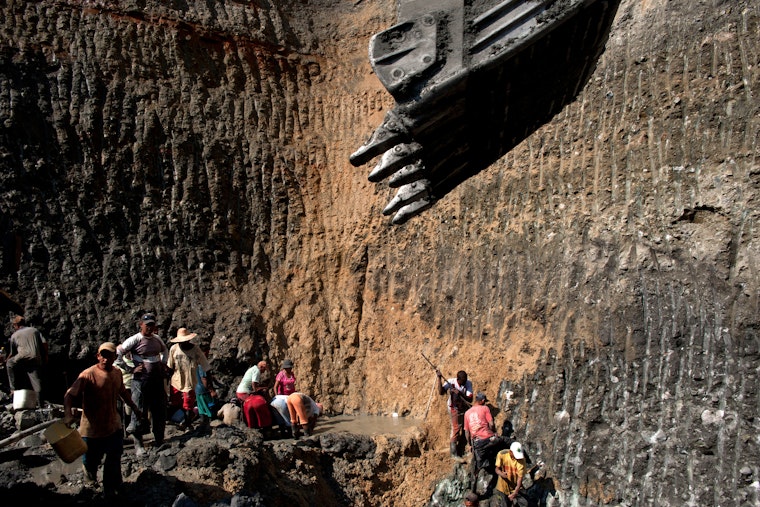Colombia’s Peace Process Needs an Accountable Extractives Industry
By Andrés Hernández & Ana Carolína González

In Colombia, Sergio Jaramillo, one of the people who has led the government’s efforts to end a half-century of conflict with the leftist guerrilla group Revolutionary Armed Forces of Colombia (FARC), has said that a major part of any final peace plan will be la paz territorial [link in Spanish], or territorial peace.
That’s because much of the heaviest fighting over the years has been in rural areas and small towns far from urban centers, especially near mining operations built around the extraction of hydrocarbons, metals, and minerals. This is no coincidence. FARC’s extortion of formal enterprises in the sector, as well as its own illegal extraction of minerals in numerous regions, has fueled its long-running conflict with the state.
While the eventual signing of the peace agreements implies a permanent end to FARC’s control over territories where there is extraction of nonrenewable natural resources, the agreements so far do not include any commitments by the guerrilla group to abandon its illegal mining activities. Indeed, the state has yet to define how it will guarantee that other guerrilla groups or criminals don’t simply resume any illegal mining operations FARC gives up.
But beyond a focus on illegal activities, to secure la paz territorial in the long run, national, regional, and local public institutions will have to be strengthened to ensure that communities most affected by the conflict are able to participate in the political process.
Private companies in the mining and energy sectors will have to adapt as well. These sectors are highly centralized and hierarchical, but they cannot remain so if they are to be responsive to the people who live and work near extractive operations. Companies will have to increasingly consider the social and environmental impacts of their practices, communicate directly with local communities, be attentive to complaints and concerns, and develop clear systems for preventing problems and managing them when they do arise. Respecting and empowering these communities can help ensure that extraction operations continue smoothly, sustainably, and legally.
Special attention to the mining and energy sectors is important for another reason, too. Colombia’s national budget relies heavily on revenues from extraction, and the country may look to such revenues to fund the implementation of peace. But increased political participation and mobilization—a priority of the peace process—may lead to socioenvironmental tensions and social protests, as they have in Caquetá, where over the summer protesters blocked access to trucks belonging to a Chinese oil company, or in places where new extractive projects are being started up. The recent slowdown in extractive activity stemming from the fall of international oil and commodities prices for mineral products will not put an end to that.
In this context, civil society and local communities must be empowered to demand accountability from the extractive sector, and the state must play a major role in mediating and preventing the escalation of these conflicts. At the Mesa de Sociedad Civil para la Transparencia en las Industrias Extractivas, a coalition of civil society groups formed in 2013 to promote transparency in the energy sector, we are working to develop an assessment of local communities’ concerns about the petroleum, gas, and mining industries in order to broaden the voice of civil society in advocacy efforts and stay abreast of developing problems.
About 30 civil society and academic groups from 11 regions in Colombia where mining and extraction of oil and gas take place are part of the Mesa. So far, the Mesa has identified strong obstacles for social leaders and organizations in these areas to access key information for their communities, such as investment of royalties and taxes, or environmental licenses and investments made by companies and public authorities. This is a particularly difficult task in regions such as Cordoba, Antioquia, Putumayo, and Cesar, where asking for public information may in some cases create security risks for leaders and local communities.
As Colombia confronts the prospect of peace, the government, private companies, and civil society must work together to ensure that social tensions do not translate into violence or other human rights violations so that our next half century looks different from the last one.
Mesa de Sociedad Civil para la Transparencia en las Industrias Extractivas is a grantee of the Open Society Foundations.
Andrés Hernández is director of citizenship at Transparencia por Colombia.
Ana Carolína González is a researcher at the Universidad Externado and civil society representative to the global board of the Extractive Industries Transparency Initiative.